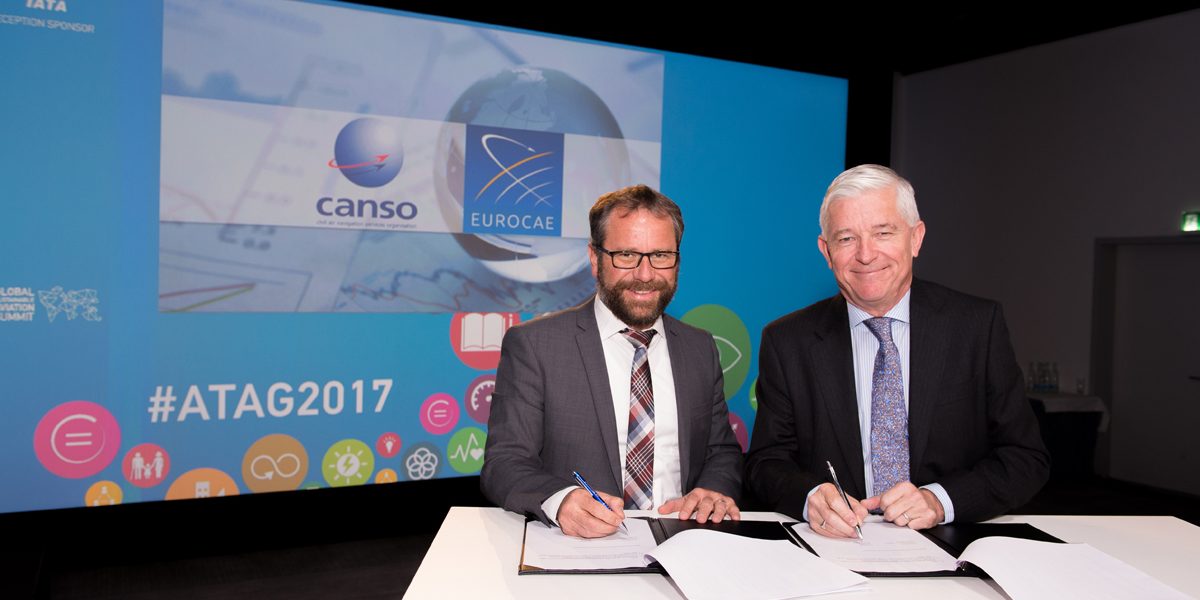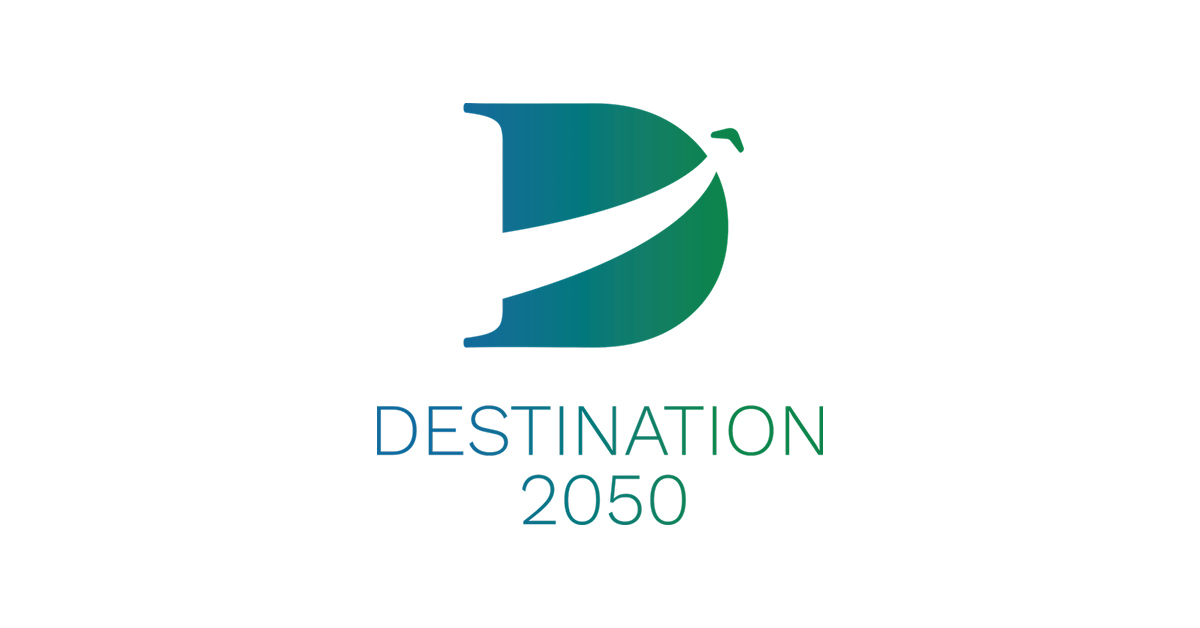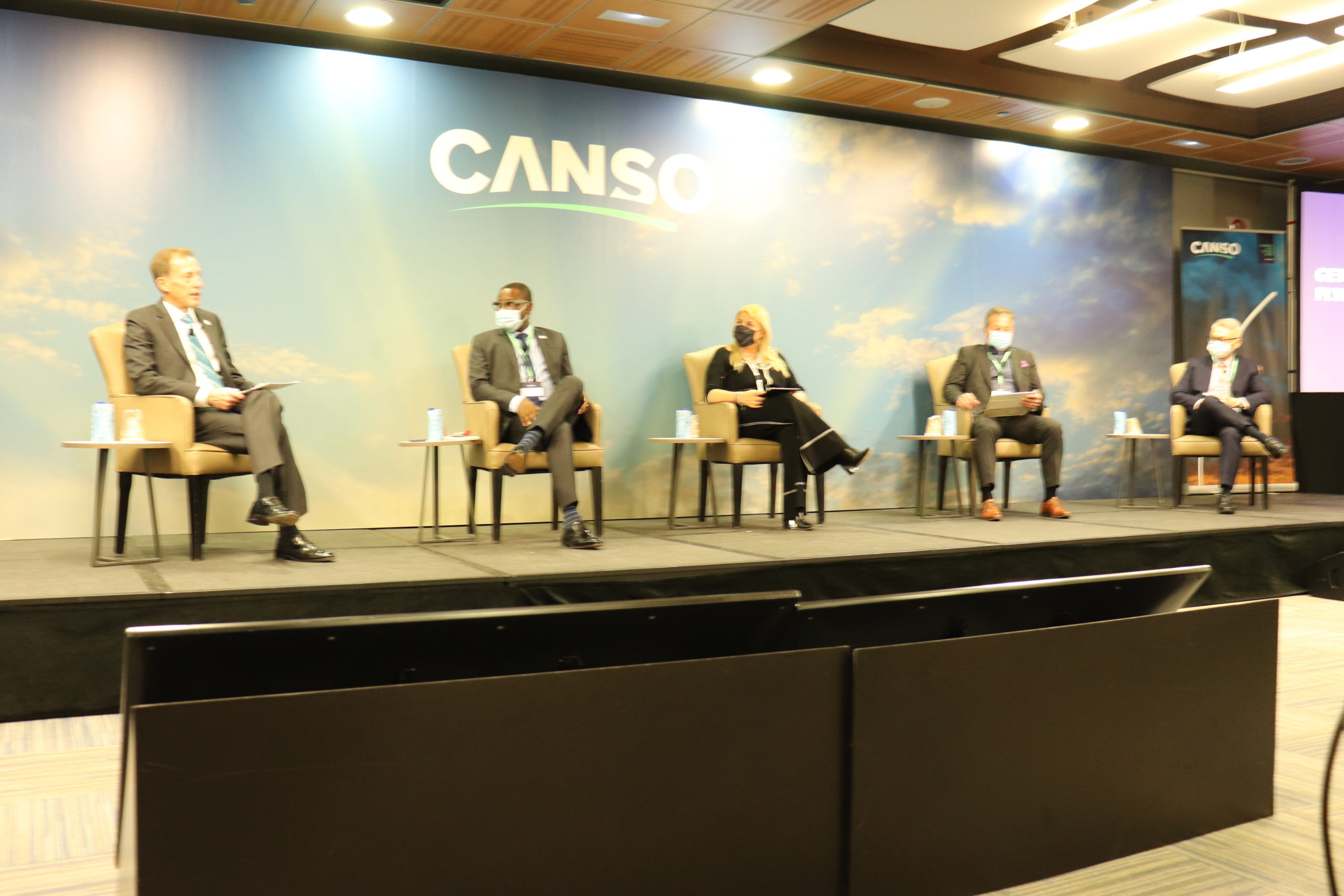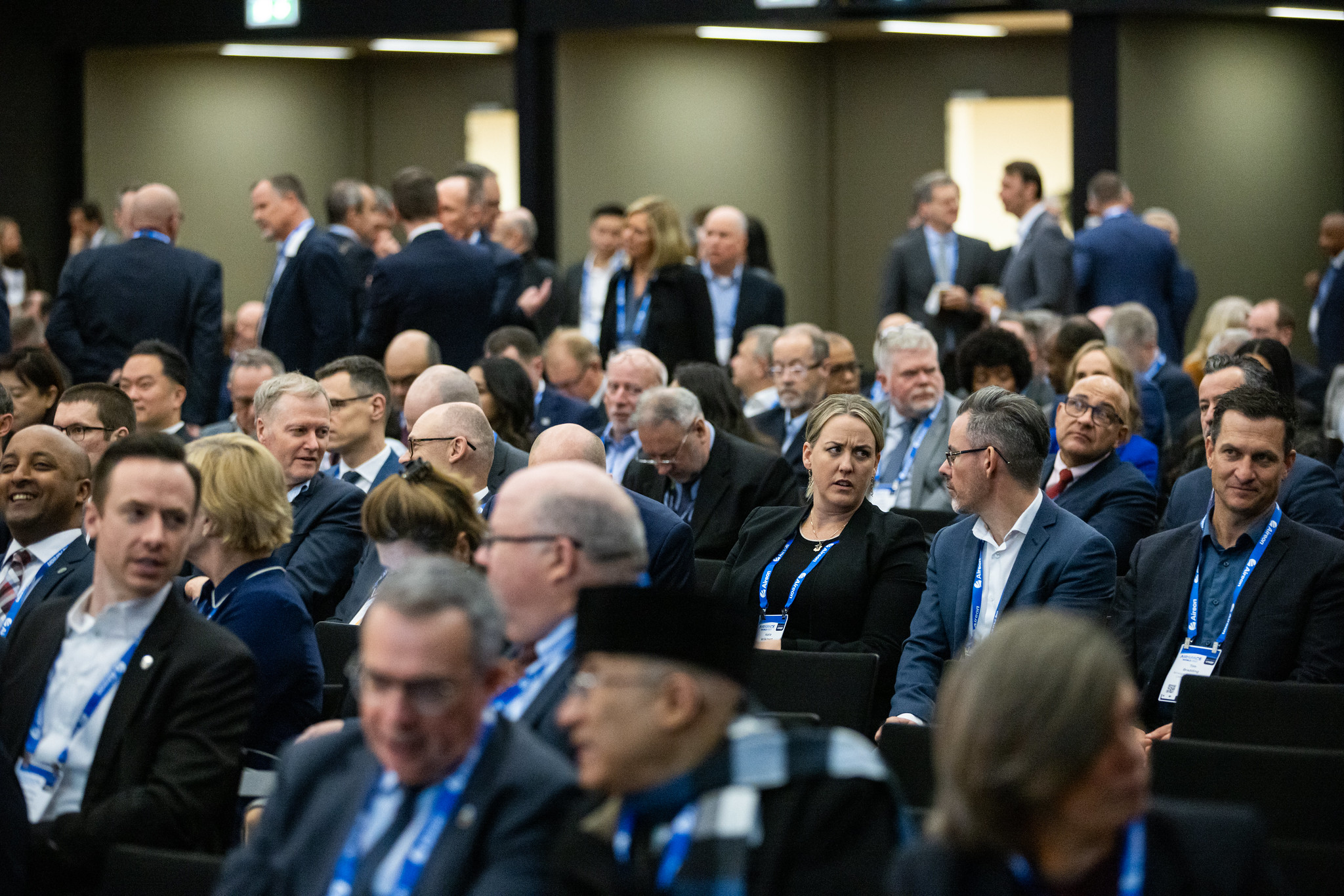CANSO and EUROCAE commit to jointly develop standards on air traffic management issues including integration of UAS and cyber-security

Amsterdam and Paris, 10 October 2017 – The Civil Air Navigation Services Organisation (CANSO) and the European Organisation for Civil Aviation Equipment (EUROCAE) have agreed to work together on developing aviation industry standards, with a particular focus on standards for air traffic management. The Memorandum of Understanding enables the two organisations to address issues such as the safe integration of UAS in all types of airspace and cyber-security; and will speed up the implementation of new technologies to ensure safe, seamless and efficient aviation in Europe.
The Memorandum of Understanding (MoU) provides a framework for cooperation between the two organisations. These include exchanging information, sharing expertise and best practices, and cross-participation in working groups on topics such as cybersecurity, unmanned aircraft systems (UAS), system-wide information management (SWIM) and performance-based navigation (PBN). As a first step, CANSO joined EUROCAE as a Full Member in July 2017 in recognition of the efforts of both organisations to enhance aviation and promote strong cooperation in developing industry standards to support global and regional interoperability of air traffic management (ATM) systems.
CANSO Director General, Jeff Poole, said, “There is a growing need for new standards with the transition to performance-based regulation; increasing interoperability between ATM systems; and deployment of the Single European Sky ATM research (SESAR) initiative. EUROCAE standards are essential enablers to achieve an efficient, connected and sustainable aviation industry. The MoU between EUROCAE and CANSO will ensure collaboration to develop and drive new standards. This initiative shows the commitment of CANSO to transform global ATM performance; address the challenges of safe integration of UAS and cyber-security; and speed up the implementation of new technologies to ensure safe, seamless and efficient aviation in Europe and beyond.”
CANSO will join the EUROCAE Working Group on Aeronautical Systems Security. With the move to network-centric aeronautical information management and an increasingly interconnected aviation system, the need for robust security has never been greater. The working group will develop aeronautical system security guidelines; specifying security objectives and addressing airborne systems and their interface with ground systems. CANSO will also join the Working Group on Unmanned Aircraft Systems (UAS). With the rapid increase in UAS or drones the working group will focus mainly on the interface between the remote pilot station (RPS) and the responsible air traffic controller and will also address the information integration between ATM and UAS traffic management (UTM). CANSO will join other working groups in the future.
EUROCAE is the European leader in the development of worldwide recognised industry standards for aviation. EUROCAE has extended its activity from airborne equipment to complex air traffic management (ATM) and communications, navigation and surveillance systems (CNS).
EUROCAE Secretary General, Christian Schleifer-Heingärtner, said, “We see a big overlap in areas of interest on subjects we address with CANSO and see a great opportunity to complement each other’s working structure to the benefit of the aviation community. CANSO, as the global voice of air traffic management, is therefore key in the process to develop standards in support of the regulatory frame. The MoU further defines the link and coordination mechanism, to ensure that the resources available are used efficiently and effectively in developing standards to react quickly when we address the challenges of today, as Jeff Poole named them, UAS integration, cyber security and the modernisation of our ATM structure. CANSO’s growing role in representing the ANSPs can´t be missed anymore in the aviation landscape, the perfect example is the European ATM standardisation coordination group (EASCG), where CANSO has proven to be the competent voice of air traffic management. We see many more opportunities arising out of this cooperation agreement.”
This collaboration is not intended to replace the individual contribution of EUROCAE and CANSO member organisations to EUROCAE and CANSO activities, but rather to encourage their respective members to strengthen their engagement in the work of EUROCAE and CANSO.



